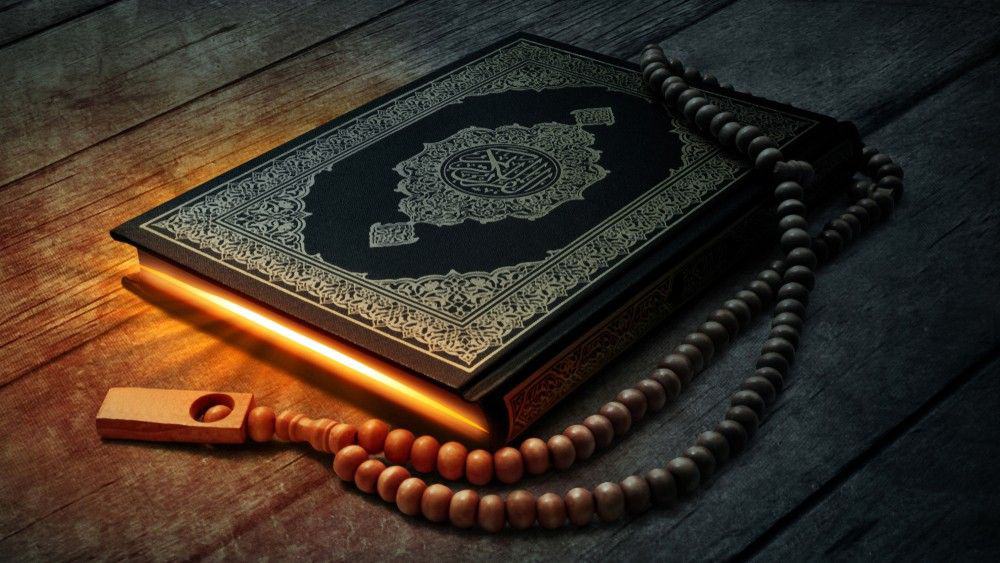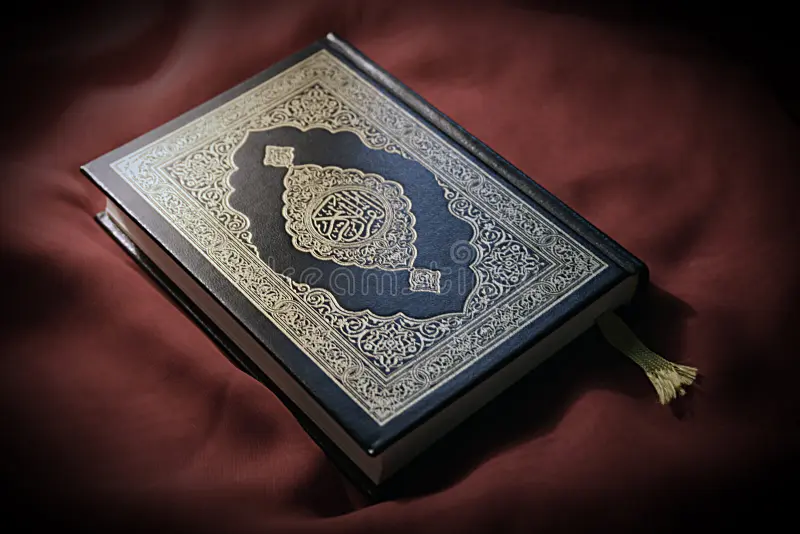Introduction
How Many Holy Books In Islam: Islam is an Abrahamic faith with one God and a strong devotion to its holy books. When we ask, “How many holy books are there in Islam?” we are taken on a spiritual trip where we learn about God and understand him better.
The Quran is the most important book in Islam. Muslims believe that the angel Gabriel spoke directly with God and told the Prophet Muhammad things. Islam is based on the Quran, which means people how to live their lives and deal with issues of faith and morals. Its verses, or ayahs, are what Islamic law and faith are based on.
Islam sees many other writings as canonical that have had an impact on the development of the religion’s beliefs. These are the Psalms (Zabur), the Gospel (Injil) that was sent to Prophet Jesus (Isa), and the Torah (Musa). Even though these writings are known, the Quran is seen as the last and most important revelation, coming after all other revelations.
The large number of holy books in Islam shows that these divine messages are linked and continue to be given. Every book is seen as an important part of the chain of prophets who have brought God’s word to people throughout history.

What are the 5 holy books in Islam?
Belief in the Books of God: Muslims believe that God revealed holy books or scriptures to a number of God’s messengers. These include the Quran (given to Muhammad), the Torah (given to Moses), the Gospel (given to Jesus), the Psalms (given to David), and the Scrolls (given to Abraham).
The five most important holy books in Islam, which is an Abrahamic divine religion, are called the “Kutub al-Khamsa.” These sacred books are very important to Islam and help Muslims with their faith, morals, and daily life.
The Qur’an: For Muslims, the Qur’an is the most important holy book because it has the exact words of God that He spoke to the Prophet Muhammad over 23 years. It is the most complete source of information on faith, the law, morality, and spirituality, and it covers every aspect of life.
For Muslims, the Torah (Tawrat) is the holy book that God gave to the Prophet Moses, who is also called the Muslim Prophet. Muslims believe that God spoke to Moses first, even though they think that what He said has changed over time.
The Psalms (Zabur): The Zabur is a collection of religious and lyrical songs that are said to have been written by the Prophet David, who is known as Dawud in Islam. Muslims believe that some songs in the Hebrew Bible are similar to the first message that God gave to David.
The Gospel (Injil): In Islam, the Gospel is the message from God that Jesus (Isa) got. They do say, though, that the original meaning has been tainted by time and that the Bible, as it is now seen, does not fully show what Jesus really taught.
The Suhuf Ibrahim, which is also called the Scrolls of Abraham, has yet to be well known. However, Muslims think it is a collection of revelations given to the Prophet Abraham, who is called Ibrahim in Islam. Some people believe that these scrolls are the first examples of divine direction.
Belief in these five holy books supports the Islamic idea of a continuous line of prophets who are all connected, and each gets revelations that are specific to their community. Muslims think that earlier writings were messages from God, but the Qur’an is seen as the last and final revelation.
What is the primary holy book in Islam, and what role does it play in shaping Islamic beliefs and practices?
The Quran is thought to contain the exact words of God that the angel Gabriel spoke to the Prophet Muhammad. It is the most important book for Muslims to follow because it is the foundation of Islam. Each word in the Quran is called an Ayah, and the chapters are called Surahs. These poems are about a lot of different things, like morals, religion, the law, and advising others.
Islam’s main ideas are built on the Quran, which gives a full framework for understanding God’s qualities, the meaning of life, and the moral rules that should guide both private and public life. It shows that God is one (Tawhid) and stresses how important it is to give in to God’s will (Islam). Muslims believe that the Quran is a permanent, all-encompassing guide that can be used in any situation.
The Quran is the final word on faith, traditions, prayers, and how to behave morally. The Five Pillars of Islam are based on what the Quran says. They are formal prayer (Salah), a statement of faith (Shahada), giving to others (Zakat), fasting during the month of Ramadan (Sawm), and making the journey to Mecca (Hajj). Sharia law, which is the governing system in many countries with a large Muslim population, was also based on this book.
In the Quran, it says that Muslims should learn new things, think deeply, and look for signs of God in nature. It makes a strong spiritual link between people and their Creator and gives Muslims peace, guidance, and ideas for living their daily lives.
The Quran is more than just religious literature; it also serves as a source of continuity and unity for the Muslim community around the world. It is a full guide that affects Muslims’ daily lives, morals, and worldviews.
How many books were there in Islam?
There are five key books of revelation in Islam. Each of them was given to a different prophet by Allah. Muslims believe that these holy books all conveyed the same message from Allah to the humanity, giving guidance to Muslims on how to live their daily life.
Islam recognizes several holy books, but the Qur’an is seen as the most important and complete message. The main idea is that God, who is also called Allah, sent many prophets into the world to teach people what to do. Each Prophet was given a different book that was appropriate for their time and culture. Other Islamic traditions may have a different number of books, but five important ones are usually listed.
The Qur’an is the most important book in Islam. It is thought to be the exact words of God, which He spoke to the Prophet Muhammad for 23 years. In terms of religion, morality, the law, and spirituality, it is the last word.
People believe that the Torah (Tawrat) was given to the Prophet Moses, who is also known as Musa in Islam. On the other hand, Muslims believe that the meaning has changed over time.
The Psalms (Zabur): The Zabur is a collection of hymns and devotional verses that is said to have been written by the Prophet David, who is also known as Dawud in Islam. Even though there are some similarities with the current Psalms, Muslims believe that the original revelations were given to David.
Injil, or the Gospel, is what Muslims believe is the divine word that Jesus (Isa) got. Still, they think that the canonical Christian texts only partially record all of Jesus’ teachings.
The Scrolls of Abraham (Suhuf Ibrahim): Muslims believe that the Scrolls of Abraham are messages from God that were given to the Prophet Abraham, who is also known as Ibrahim in Islam.
Even though these five are often brought up, Islam recognizes that other divine works may have been sent to different prophets that aren’t mentioned directly in the Qur’an. The Qur’an is seen as the final, all-encompassing, and eternal source of advice for everyone. Each book has had a specific role in guiding the society in which it was written.
What are the 7 holy books of Islam?
Contents
1 Major books. 1.1 Quran. 1.2 Tawrat (Torah) 1.3 Zabur (Psalms) 1.4 Injil (Gospel)
2 Additional scriptures. 2.1 Scrolls of Abraham. 2.2 Scrolls of Moses. 2.3 Book of John the Baptist.
3 See also.
In some religions, there may be fewer or more holy books, but in Islam, the seven most important ones are central to the idea that God has been leading people throughout history.
The Qur’an is the exact word of God that was given to the Prophet Muhammad over 23 years. It is the most important and holy book in Islam. It includes morals, religion, the law, and spiritual direction.
The Torah (Tawrat) is a holy book that was given to the Prophet Moses, who is also known as Musa in Islam. Muslims, on the other hand, believe that the meaning has changed over time.
The Psalms (Zabur): The Zabur is a collection of hymns and devotional verses that is said to have been written by the Prophet David, who is also known as Dawud in Islam. Muslims think David got the first revelations, even though the Psalms don’t say so.
Injil, or the Gospel, is what Muslims believe is the divine word that Jesus (Isa) got. Still, they think that the canonical Christian texts only partially record all of Jesus’ teachings.
The Scrolls of Abraham (Suhuf Ibrahim): Muslims believe that the Scrolls of Abraham are messages from God that were given to the Prophet Abraham, who is also known as Ibrahim in Islam.
Suhuf Musa, or the Scrolls of Moses, are sometimes thought of as a different book in Islamic traditions. It is said that these include clear revelations given to Prophet Moses.
In the same way, some legends say that the Jesus Scrolls are divine messages that were sent to the Prophet Jesus (Isa in Islam).
Even though these seven holy books are talked about a lot, it is important to keep in mind that different Islamic faiths may have other counts and names for them. The main teaching says that God sent a series of prophets, each with specific instructions for their groups. The Qur’an contains the last and most general instructions.

How does the Quran differ from other recognized holy books in Islam, and what is its significance in the hierarchy of divine revelations?
The Quran is the most important book in Islam. It is different from other canonical holy works because it is God’s last and final message. Islam recognizes that earlier works, like the Torah given to Prophet Moses (Musa), the Psalms given to Prophet David (Dawud), and the Gospel given to Prophet Jesus (Isa), had divine beginnings. But the Quran is different because it claims to be God’s final and unchanging message.
One big difference is that the Quran has been kept safe. Muslims think that the Quran has not been changed since it was revealed, which confirms that it is real and pure. But this is different for old texts, which are said to have changed over time.
The Quran is an important part of the chain of divine teachings. It is seen as the last word on how to guide people, removing and validating earlier texts. Muslims believe that the Quran is the most important book ever written and will show all of their lives until the end of time. Its chapters stress how important it is for people to follow the last directions in the Quran and also show how the lessons from earlier books are connected.
In the same way, Islamic theology says that the Quran is the most important source of moral and legal rules. By making a complete set of rules for both private and public life, it gives Muslims a moral and spiritual identity. Everyday prayers are read from the Quran, and the ideas in the book form Islamic law, which provides believers with a clear and consistent way to live their lives.
The Quran is different from other books because it says it is God’s last and final word, which can’t be changed. It is very important in the chain of heavenly revelations because it tells Muslims how to live their lives in a way that is in line with God’s will.
What are the 3 main books of Islam?
Belief in the Books of God: Muslims believe that God revealed holy books or scriptures to a number of God’s messengers. These include the Quran (given to Muhammad), the Torah (given to Moses), the Gospel (given to Jesus), the Psalms (given to David), and the Scrolls (given to Abraham).
Three major texts in Islam are used to teach religion: the Qur’an, the Hadith, and the Sunnah.
The Qur’an is the most important and revered holy book in Islam. Muslims believe it to be the real words of God that the angel Gabriel spoke to the Prophet Muhammad over 23 years ago. It covers a lot of ground, like religion, morals, spirituality, and the law. The Qur’an is read and learned by millions of Muslims around the world. It is broken up into lines (Ayahs) and chapters (Surahs). People see it as the last and complete discovery, with timeless advice for every part of life.
Did the Prophet Muhammad say, do, or suggest something? That’s what Hadith means. The Hadith, which was put together by experts in the ages after the Prophet died, is an important addition to the Qur’an because it gives a lot of reasons for what it says and shows how it can be used in real life. Hadith is put into groups based on how true the stories are and how reliable the people who told them are. It is an important book to read if you want to learn how the lessons in the Qur’an are used in everyday life and in making Islamic law.
The Sunnah is made up of the Prophet Muhammad’s customs and ways of life. It’s made up of his actions, words, and advice, and it shows how to live an honest and straight Islamic life in the real world. Along with the Hadith, the Sunnah is a major source of moral guidelines and court decisions. Muslims try to be like the Prophet in terms of character and behavior so that they can live by the ideals in the Qur’an. Muslims can use the Sunnah as a guide in their personal, spiritual, and social lives because it is written down in the Hadith.
The Qur’an, Hadith, and Sunnah are the main sources of Islamic beliefs. They give Muslims a complete way to think about and live their lives.
Authority and importance in Islamic jurisprudence
When it comes to Islamic law, power, and relevance are two of the most important ideas that shape how it is understood and applied. The Quran, which is Islam’s holy book, and the Hadith, which are the things that Prophet Muhammad (peace be upon him) said and did, are the main sources of law in Islam. The courts use these sources, which are thought to be divine messages, to make decisions.
Islam says that the Quran is the last word and that it holds the exact words that God spoke to the Prophet Muhammad. Its words explain a lot of different things, like life, morals, and justice, and give detailed rules and ideas. Islamic jurists, who are also called scholars, read the Quran to find moral rules and law rules that can be used in modern life.
The Hadith adds to the Quran by showing how the Prophet lived and how he followed the lessons in the Quran. There is a thorough process that academics go through to make sure that Hadith is true, and those that pass help to build Islamic law. A main source of legal precedent is the Sunnah, which is the Prophet’s deeds, including those he approved of and those he didn’t.
In Islamic law, two other forms of authority are agreement (ijma) and logic (qiyas). In the Muslim community, the word “ijma” means “group agreement” and is used to show that everyone agrees on a certain law issue. Qiyas lets the law change with the times by using analogies to apply old legal ideas to new scenarios.
It is important to use these sources because they help make Islamic law consistent and honest. They give Muslims a full plan for how to handle the different parts of life while still being fair, just, and moral. Jurists, also called mujtahids, are qualified experts who read and understand these sources in a way that stays true to Islamic principles and keeps Islamic law up-to-date and adaptable to new needs in society.
Number of holy books in Islam compared to other major religions
Islam, Christianity, and Judaism are the three main Abrahamic faiths. They all have some things in common, like respect for holy texts and belief in one God. There is canonical literature in every faith, but the number of texts and how important they are varies.
The Quran is the most important and well-known holy book in Islam. Muslims believe it is the exact word of God, given to the Prophet Muhammad by the angel Gabriel. As the last and most important revelation, the Quran teaches about religion, morality, and the law. Muslims believe in both the Quran and the Hadith, which is a collection of what the Prophet Muhammad said and did. The Hadith puts the lessons of the Quran in context, even though the Quran is seen as the pure and direct word of God.
In Christianity, on the other hand, the Bible is seen as a holy book. The Holy Bible is made up of two main parts: the Old Testament and the New Testament. Jews and Christians both use the same Old Testament, which has books like Genesis, Exodus, and Psalms. Books like the Gospels of Matthew, Mark, Luke, and John are in the New Testament. They are about the life and lessons of Jesus Christ.
The Tanakh, also called the Hebrew Bible, has most of the Jewish holy books. Written works (Ketuvim), prophets (Nevi’im), and the Torah (first five books) make it up. In Jewish tradition, the Talmud, which is a gathering of teachings and commentary from rabbis, is also very important.
The holy books of Christianity and Judaism are split up into different parts. The Quran, on the other hand, is Islam’s main and only holy book. The Quran is the only direct source of revelation according to Islam, and it is the last and most complete message from God. For example, Christianity and Judaism are based on a lot of different writings from different times and points of view in history. Every religion has a holy book that people hold dear, and that shapes their actions and beliefs.
By looking into how many holy books there are in the religion, we can fully understand how complicated Islam’s theology is and how its sacred books are connected. For Muslims all over the world, the Quran is the most important and final source of education. It explains everything about religion and behavior. Its pages give you long-term wisdom, moral guidance, and a plan for how to live a good life.

Accepting more holy books, like the Torah, Psalms, and Gospel, highlights the Islamic view of a never-ending divine story in which each revelation builds on the themes of the ones that came before it. From this point of view, the Abrahamic faiths’ similar principles and origins make their shared goal stand out.
Reading Islamic sacred writings not only helps us understand the religion better but also helps people of other faiths understand each other better by showing how Islam, Christianity, and Judaism are linked. It reminds us that even though people have different religions, they all agree on moral standards, the oneness of God, and the need for people to obey God’s will.
Instead of just making a list, the question makes us think about the things that all faith traditions have in common. By the end of this study, we will have a better idea of the spiritual heritage that binds Christians from different backgrounds by focusing on our shared desire to learn, understand others, and have a closer relationship with God.










